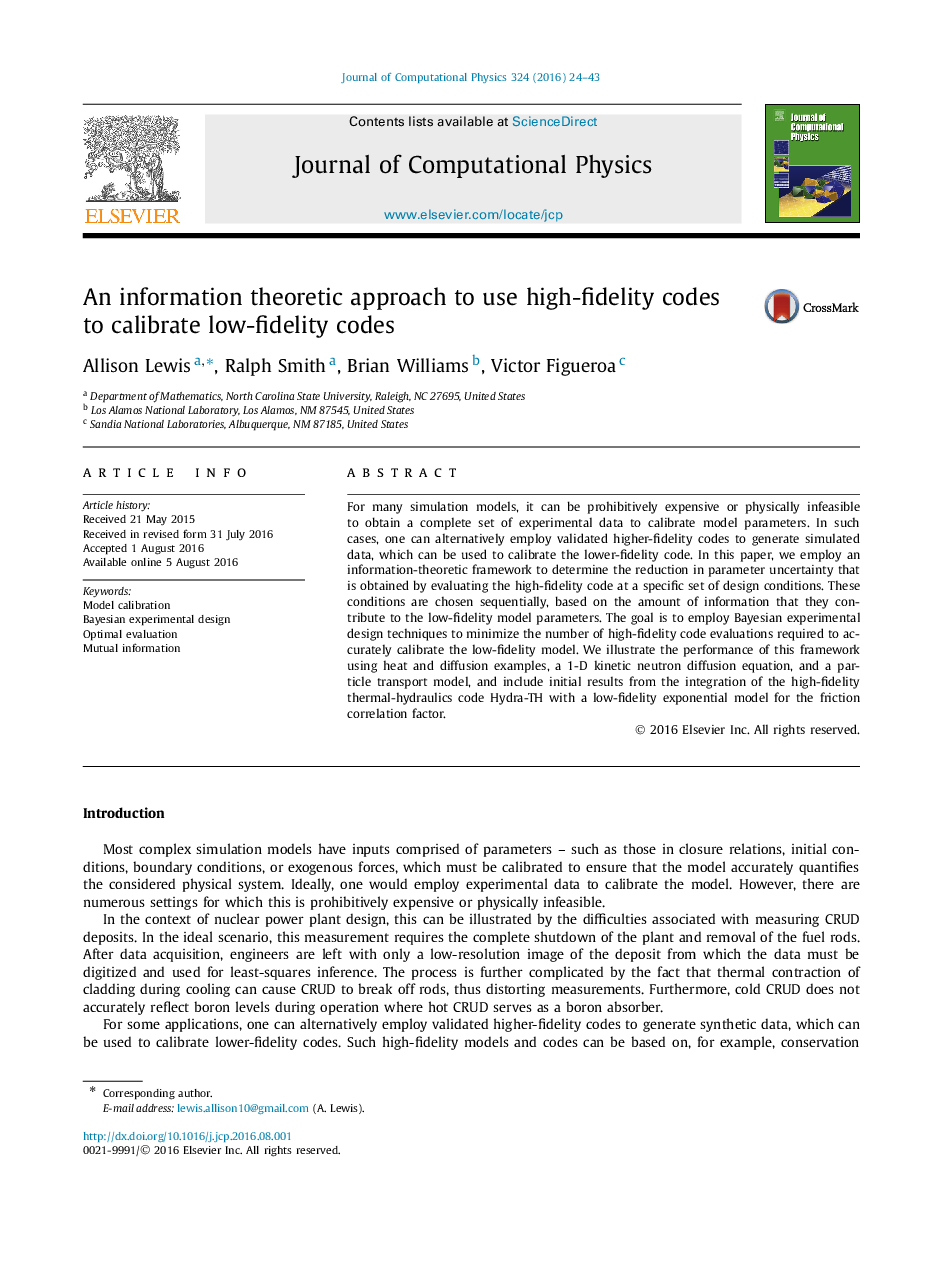| Article ID | Journal | Published Year | Pages | File Type |
|---|---|---|---|---|
| 6929444 | Journal of Computational Physics | 2016 | 20 Pages |
Abstract
For many simulation models, it can be prohibitively expensive or physically infeasible to obtain a complete set of experimental data to calibrate model parameters. In such cases, one can alternatively employ validated higher-fidelity codes to generate simulated data, which can be used to calibrate the lower-fidelity code. In this paper, we employ an information-theoretic framework to determine the reduction in parameter uncertainty that is obtained by evaluating the high-fidelity code at a specific set of design conditions. These conditions are chosen sequentially, based on the amount of information that they contribute to the low-fidelity model parameters. The goal is to employ Bayesian experimental design techniques to minimize the number of high-fidelity code evaluations required to accurately calibrate the low-fidelity model. We illustrate the performance of this framework using heat and diffusion examples, a 1-D kinetic neutron diffusion equation, and a particle transport model, and include initial results from the integration of the high-fidelity thermal-hydraulics code Hydra-TH with a low-fidelity exponential model for the friction correlation factor.
Related Topics
Physical Sciences and Engineering
Computer Science
Computer Science Applications
Authors
Allison Lewis, Ralph Smith, Brian Williams, Victor Figueroa,
